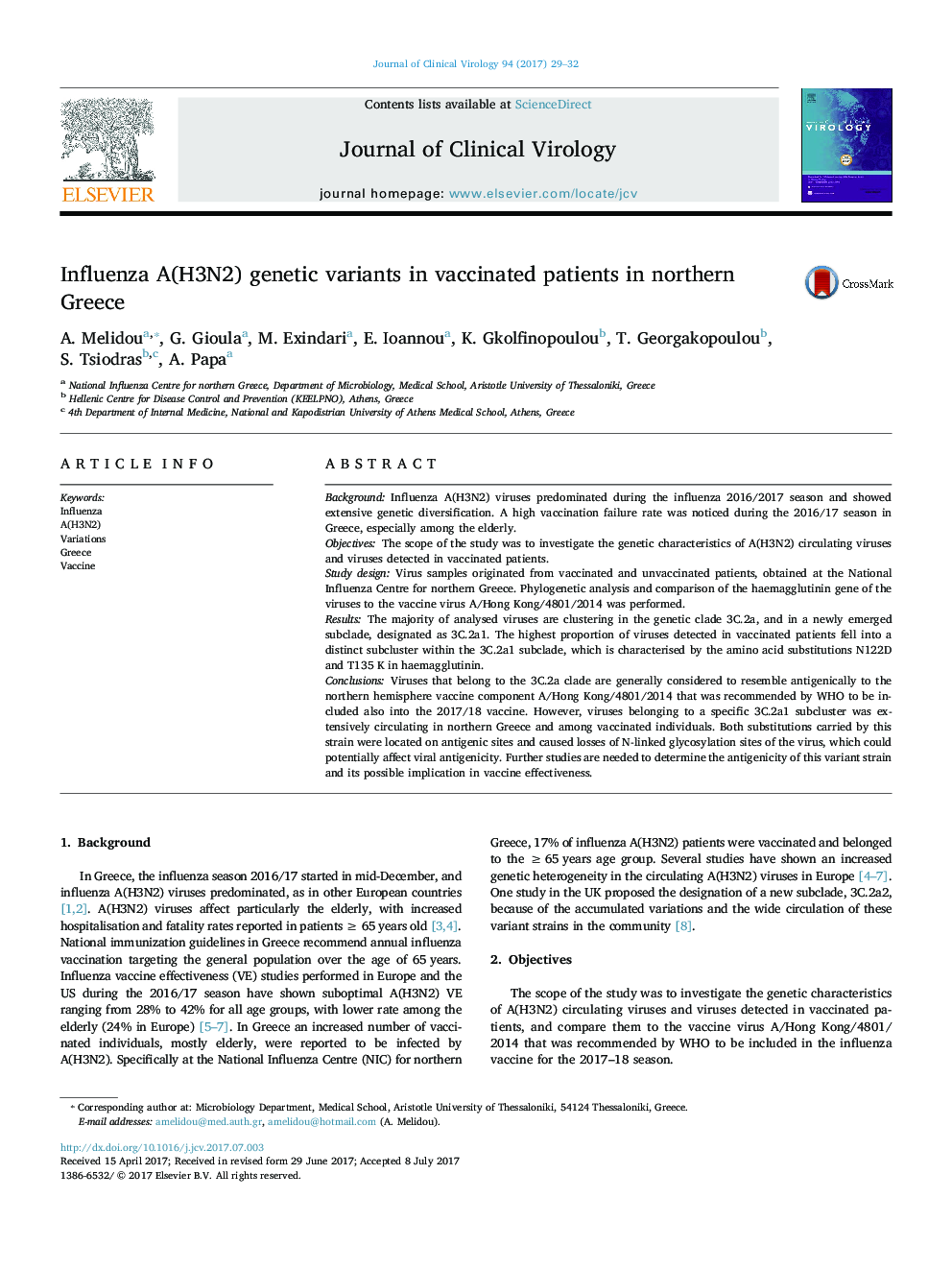| کد مقاله | کد نشریه | سال انتشار | مقاله انگلیسی | نسخه تمام متن |
|---|---|---|---|---|
| 5668039 | 1592332 | 2017 | 4 صفحه PDF | دانلود رایگان |

- Common aa substitutions T135K and D122N on viral antigenic and glycosylation sites.
- These variant strain has been observed in vaccinated patients.
- Possible antigenic drift in northern Greek A(H3N2) circulating viruses.
- Continuous monitoring of A(H3N2) evolution and circulation of variant strains is essential to monitor their effect on vaccine effectiveness.
BackgroundInfluenza A(H3N2) viruses predominated during the influenza 2016/2017 season and showed extensive genetic diversification. A high vaccination failure rate was noticed during the 2016/17 season in Greece, especially among the elderly.ObjectivesThe scope of the study was to investigate the genetic characteristics of A(H3N2) circulating viruses and viruses detected in vaccinated patients.Study designVirus samples originated from vaccinated and unvaccinated patients, obtained at the National Influenza Centre for northern Greece. Phylogenetic analysis and comparison of the haemagglutinin gene of the viruses to the vaccine virus A/Hong Kong/4801/2014 was performed.ResultsThe majority of analysed viruses are clustering in the genetic clade 3C.2a, and in a newly emerged subclade, designated as 3C.2a1. The highest proportion of viruses detected in vaccinated patients fell into a distinct subcluster within the 3C.2a1 subclade, which is characterised by the amino acid substitutions N122D and T135Â K in haemagglutinin.ConclusionsViruses that belong to the 3C.2a clade are generally considered to resemble antigenically to the northern hemisphere vaccine component A/Hong Kong/4801/2014 that was recommended by WHO to be included also into the 2017/18 vaccine. However, viruses belonging to a specific 3C.2a1 subcluster was extensively circulating in northern Greece and among vaccinated individuals. Both substitutions carried by this strain were located on antigenic sites and caused losses of N-linked glycosylation sites of the virus, which could potentially affect viral antigenicity. Further studies are needed to determine the antigenicity of this variant strain and its possible implication in vaccine effectiveness.
Journal: Journal of Clinical Virology - Volume 94, September 2017, Pages 29-32